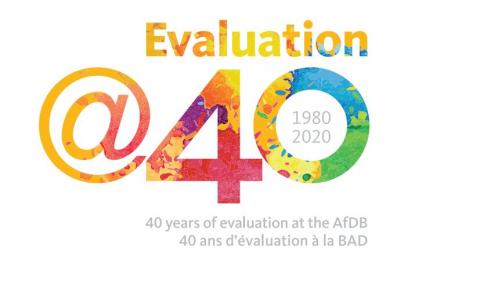
The expression “living in uncertain times” is an understatement to characterize 2020. The COVID-19 pandemic has affected the way we all live and work, and has required us to adapt. AfDB staff, for example, have been fully working from home since March 2020. Despite the turbulence, IDEV proved resilient. It was able to ensure business continuity and continued to deliver on its core Work Program. In fact, it exceeded its target for 2020 by delivering a record 20 evaluation products. These include:
- Two project cluster evaluations: on the Bank’s support for access to finance and Mainstreaming green growth into the Bank’s interventions;
- Two impact evaluations: of a Road project in Ghana and Irrigation projects in Malawi;
- Two Country Strategy and Program Evaluations: Egypt and Mali;
- Six sector and thematic evaluations covering the Bank’s support for access to finance, the energy sector, its private sector development strategy, the African Water Facility, the Bank’s partnerships and loan syndication;
- Four corporate evaluations covering the Bank’s Fragility Strategy, its Portfolio Review and Restructuring Policy, its civil society engagement, and mainstreaming green growth into its interventions ;
- An evaluation synthesis on Gender mainstreaming;
- The 2014-2019 XSR (Expanded Supervision Report) validation synthesis report;
- The 2018 PCR (Project Completion Report) validation synthesis report.
Since the outbreak of the COVID-19 pandemic, IDEV faced several challenges in conducting empirical data collection and site visits for its evaluations. Local and international travel restrictions resulted in limited access to governments, beneficiaries and partners, and hindered our evaluation teams’ ability to conduct face-to-face interviews with key stakeholders. To address these challenges while continuing to implement its Work Program, IDEV has employed remote data collection tools, such as virtual and online communication tools to interact with external stakeholders and Evaluation Reference Groups. Where feasible, new sources of evidence such as “big data” and geo-spatial data sets were also considered and applied.
In the year that we celebrate 40 years of evaluation at the AfDB (the first evaluation unit was set up in 1980), demand for evaluative knowledge continues to be strong, both from the AfDB Board of Directors and Management. IDEV adjusted its 2020 work program in response to requests for evaluations made during the discussions on the seventh General Capital Increase of the Bank. In addition, to support the Bank's response to COVID-19, IDEV prepared and published two Lesson Notes, “Lessons from the Bank’s Response to the 2014–2016 Ebola Crisis” and “Findings and Lessons from AfDB Crisis Response Budget Support Operations”. IDEV also organized (virtual) events to capitalize on the knowledge gleaned from various evaluations of the water sector, irrigation, gender mainstreaming and the Bank’s Project Completion Reports. The AfDB Development Evaluation Week took place from 2 to 4 December. Evaluation Matters quarterly magazine and the IDEV 2019 Annual Report were also produced, and IDEV delivered its first Management Action Record System (MARS) report, which tracks the implementation of evaluation recommendations by the Bank.
IDEV continued to support evaluation capacity development in the Bank and throughout the African continent both on the supply side and the demand side. In 2020, IDEV organized three trainings for its staff and several webinars that were open to a wider audience. Webinar topics included “Implementing the UN 2030 Agenda & its SDGs”, "Rapid Evaluation" and remote data collection techniques. IDEV also continued to support Twende Mbele, a peer learning partnership on M&E among African governments, and the Secretariat of the African Parliamentarians’ Network on Development Evaluation (APNODE), as well as the newly launched Global Evaluation Initiative.
The global shift to an online work environment also translated into an increase in IDEV’s followers on Twitter (from 1500 in 2019 to more than 2000 in 2020) as well as website visits (from 17,716 to 18,041).
We have learned a lot in 2020 and we are determined to put these lessons to good use. We are excited to dive into the work ahead, because we believe more than ever that harnessing lessons from evaluations is vital to building back better after the COVID-19 pandemic.
We are grateful to all our partners for being on this journey with us and look forward to 2021 as we work hard to deliver on our core mandate, which is to support the Bank in achieving greater development results for Africa.

